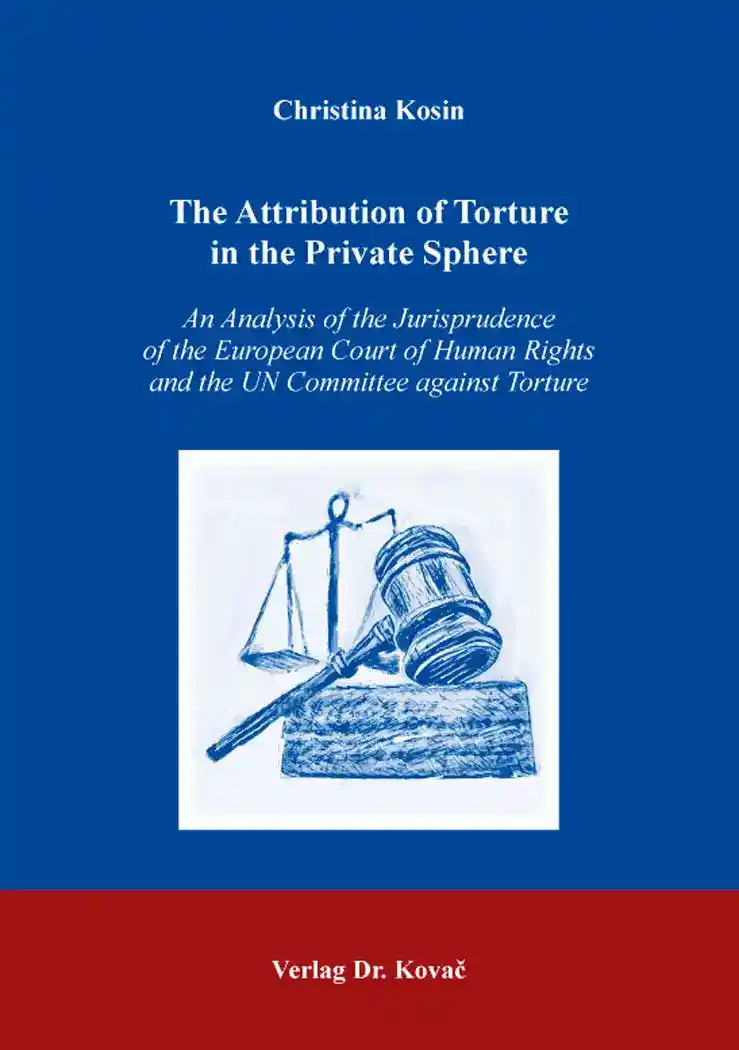Christina John (geb. Kosin)The Attribution of Torture in the Private Sphere
An Analysis of the Jurisprudence of the European Court of Human Rights and the UN Committee against Torture
Studien zum Völker- und Europarecht, volume 169
Hamburg 2020, 332 pages
ISBN 978-3-339-11758-8 (print) |ISBN 978-3-339-11759-5 (eBook)
About this book deutschenglish
The “Islamic State”, Boko Haram, Al-Qaeda and other terrorist groups commit serious crimes which are prohibited by international law. However, their actions often fall outside the jurisdiction of international human rights courts. This is because States are the principle bearers of international obligations in public international law. Thus, only acts by States can be addressed by institutions such as the European Court of Human Rights (ECtHR). However, under certain circumstances prohibited acts by non-State entities can be attributed to a State at the international level. The aim of this work is to shed light on the scope of State attribution and to find out under which circumstances a State is imputable for actions by private individuals. To this end, cases of torture and inhuman or degrading treatment or punishment by non-State actors are scrutinised under the ECtHR and the UN Committee against Torture (CAT). While the ECtHR is one of the first institutions that legally enforced the international prohibition of torture, the CAT was established solely for the purpose of fighting this heinous crime. A comparative analysis of the jurisprudence of the ECtHR and the CAT is conducted and cases including domestic violence, child abuse, honour killings, female genital mutilation and non-refoulement are examined. The concepts of the positive obligation and the due diligence to prevent ill-treatment under the European Convention of Human Rights and the UN Convention against Torture and Other Cruel, Inhuman or Degrading Treatment or Punishment play a significant role in this regard. On account of the “European migrant crisis” in 2015 the question to what extent a State is responsible and accountable for deporting and thus exposing an individual to a risk of ill-treatment by private actors such as family members or terrorist organisations in the receiving State is all the more important. This work addresses a current topic that is of particular relevance to international lawyers, law enforcement officials and domestic courts that deal with asylum cases.
Keywords
Art. 3 ECHRAsylum seekersAttributionDue diligenceEuropean Court of Human Rights ECHRIll-treatment by non-state actorsInhuman or degrading treatment or punishmentNon-refoulementPositive obligationTortureUN Committee against TortureIhr Werk im Verlag Dr. Kovač

Möchten Sie Ihre wissenschaftliche Arbeit publizieren? Erfahren Sie mehr über unsere günstigen Konditionen und unseren Service für Autorinnen und Autoren.
